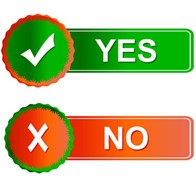 Disagreeing—it happens all the time. People like to be right, and they want others to think they’re right. But when someone else doesn’t think you are correct (or the other way around), it’s OK. However, when people forget that it’s alright to disagree and don’t respond appropriately, problems occur.
Disagreeing—it happens all the time. People like to be right, and they want others to think they’re right. But when someone else doesn’t think you are correct (or the other way around), it’s OK. However, when people forget that it’s alright to disagree and don’t respond appropriately, problems occur.
What usually happens when you or your parents disagree? Sometimes the outcome is a yelling match where people say hurtful things. The media show how disagreements go wrong—shootings, assaults, wars and more. What they don’t often show is how disagreements can end well and sometimes improve situations.
If the Rev. Martin Luther King, Jr., hadn’t disagreed with the way black people in the United States were treated, your school would look a lot different today. For some of you, your parents might never have met. Disagreeing is an important agent of change.
How to Disagree Respectfully
One of the most important things to remember about disagreeing is that it isn’t the same as fighting. The true art of disagreeing involves sticking to your guns, while making the other person feel respected. When you know how to respectfully disagree, you become valuable to your circle of influence.
The next time you want to challenge something that someone says, or someone challenges you, following these tips can help you keep the discussion classy and respectful.
Stay calm and keep your emotions in check.
The goal is to make your point of view understood. Staying calm helps you understand the other person’s point of view so you can have a more productive discussion.
Listen carefully.
Nothing gets accomplished when people talk over each other and interrupt. Listening is a sign of respect and demonstrates that you’re aware of the different viewpoints. It’s not unusual for disagreements to stem from misunderstanding, and good listening skills can help you realize when this has happened.
Don’t make it personal.
Usually, when a person says that they don’t agree with you, they are not saying that you’re stupid or that they hate you. Making a disagreement personal, putting down another person’s ideas and beliefs, and telling another person what to believe is unproductive.
Be clear and ask clarifying questions.
Back up your beliefs with facts and logic. If the other person’s reasoning isn’t logical, ask them to clarify their beliefs.
Know when to stop.
When a disagreement isn’t coming to a resolution, know when to call it quits. Quitting doesn’t mean that you give in. It means that you agree to disagree. Opposing points of view can be equally valid, and sometimes there is no right or wrong answer. It’s how you respond to another person’s opinion that counts.
Pop quiz: Which Disagreement Personality are You?
The way you disagree influences how seriously others take you, and there are five basic types of people when it comes to disagreements: Answer this question to find your type.
You and a friend are working on a school project together and divide the workload. However, you feel that your friend isn’t doing his share of the work. Do you:
A. Explain that you would like him to take on an extra responsibility or two for the assignment, and give him a chance to say why he thinks the original workload is fair.
B. Say, “You never want to do your fair share of the work. I always have to do everything. ... Whatever. You’d probably do it wrong anyway.”
C. Don’t say anything and suck it up.
D. Tell him that you don’t get why he’s so overwhelmed with his current workload, and the extra work is easy. Fair is fair.
E. Say, “I hope you don’t break a nail with your part. Let’s watch some TV now.”
If your answer is:
A: You’re respectful when there’s a disagreement. Your opinions are consistent with your feelings and body language, and you take the time to listen to the other person.B: You blame others and act aggressively toward those who disagree with you. You try to solve agreements by being controlling, judgmental and/or intimidating.
C: You are compliant. You agree with others just to avoid fights because you’re afraid that disagreeing openly will start an argument or make someone not like you.
D: You don’t like to hear negative things about yourself or your beliefs, so you try to discount others’ feelings.
E: You don’t
Notable quotes about disagreeing
If you have learned how to disagree without being disagreeable, then you have discovered the secret of getting along -- whether it be business, family relations, or life itself.
— Bernard Meltzer
I don’t have to agree with you to like you or respect you.
— Anthony Bourdain, chef
The people to fear are not those who disagree with you, but those who disagree with you and are too cowardly to let you know.
— Napoleon Bonaparte
He who cannot put his thoughts on ice should not enter into the heat of dispute.
— Friedrich Nietzsche, Human, All Too Human
I do not agree with what you have to say, but I’ll defend to the death your right to say it.
— Voltaire
